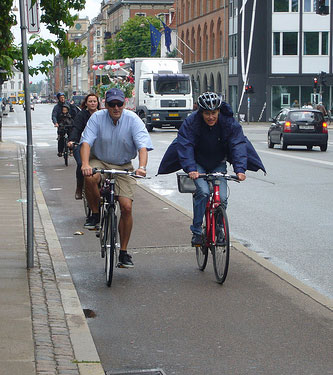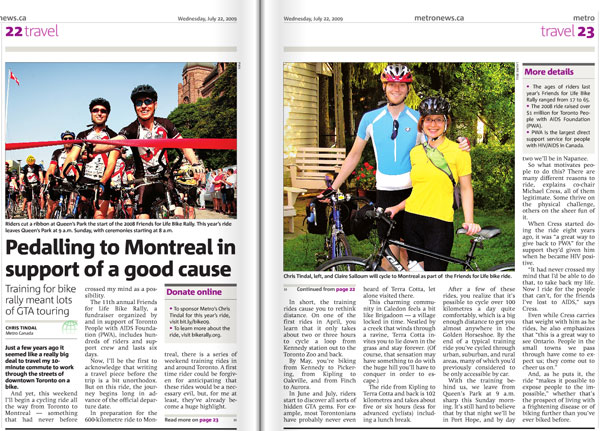Rocco Rossi’s speech to the Empire Club yesterday [PDF] has generated a lot of discussion, especially his pledge to end “the war on the car” by opposing bike lanes on arterial roads and halting planned transit construction. Underscoring that discussion is the news that another pedestrian was killed on our streets this morning, a tragedy that also brings pedestrian safety and infrastructure to mind.

I am reminded of a conversation I had while in Copenhagen last month. One of the first things you notice about Copenhagen is their extensive cycling infrastructure and how well it’s used. The climate in Denmark is similar to ours (while I was there it was cold and snowing) but because bike lanes are wide, separated, part of a large network and receive good snow clearance, they’re used year-round by large numbers of commuters and families. When I told a local woman named Anna Sophia how impressive that was, her first reaction was to lament that it wasn’t nearly good enough. “Amsterdam has a great cycling culture,” she said. “Ours is OK.”
Then I told her how many bike lanes are available to Torontonians, what they’re like, and the fact that efforts to expand our bike lane network are met by some with the “war on the car” accusation. She laughed, and said two things. First, “that’s such a Canadian/American thing to say.” (I don’t think she was trying to be hurtful.)
The second thing is what really stuck with me, though. She said, “I can’t imagine what this city would be like without our bike lanes. Everyone would have to drive. It would be so congested and impossible to get around.” The realization hit me like a tonne of bricks: she’s describing Toronto.
As Hamutal Dotan wrote for Torontoist earlier today, “what we need—urgently, and very badly—is to measure the success of our roadways by how well they move people, not cars, and privilege the modes of transportation which are most efficient at moving the largest numbers of people.” Rossi was absolutely right when he said that “cars are simply a necessity for many people,” and planners need to recognize that. However, his contention that this city suffers from too much traffic congestion due to a “war on the car” is backwards: the fact that we have so many cars on the road causing congestion is a direct result of urban design that has disproportionately favoured cars over other methods of transportation. The idea that we can somehow accommodate more cars on downtown roads while improving traffic conditions is fantasy. The best way to improve driving conditions is to offer better alternatives to driving.
All of our best research shows that when people have a transit system that works and treats them with dignity and a cycling infrastructure that doesn’t make them fear for their safety, they take advantage of it and drive less. That means fewer cars on the road, which means less congestion for those who choose or need to continue to drive. Drivers (a group that, as an Autoshare member, I include myself in, along with being a cyclist, pedestrian, and transit user) who want less congested streets should favour “complete streets” that do a better job of balancing different transportation options.

